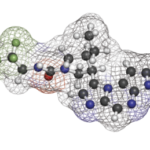up treatment for both adults and pediatric patients with GPA/MPA.
Since the 2018 ACR/ARHP Annual Meeting, the FDA has approved four treatments that are biosimilar to drugs often prescribed by rheumatologists: adalimumab-adaz (Hyrimoz), adalimumab-bwwd (Hadlima), etanercept-ykro (Eticovo) and rituximab-pvvr (Ruxience). The FDA also approved several first-time generic drugs that may be prescribed for patients with rheumatic diseases, including nabumetone, febuxostat, pregabalin, tramadol hydrochloride 100 mg tablets, sildenafil oral suspension, penicillamine and bosentan, noted Dr. Glaser.
Additionally, colchicine oral solution (Gloperba), a new formulation of this drug, was approved in January 2020 for prophylaxis of gout flares in adults, providing patients with a new option for gout flare management.
“The last year has been an exciting year for the division, community, and patients. We have approved multiple products for rheumatic diseases, and approved drugs for new indications and populations, including first approvals to slow pulmonary function decline in SSc-ILD, for oral ulcers in Behçet’s disease, non-radiographic axial spondyloarthritis, pediatric patients with SLE and pediatric patients with GPA/MPA,” said Dr. Glaser.
Safety Issues
In 2019, the FDA added warnings for several important safety issues, and announced drug recalls and drug shortages, said Nadia Habal, MD, medical officer, DPARP.
Febuxostat (Uloric), a selective xanthine oxidase inhibitor, received a revised indication for chronic management of hyperuricemia in gout patients who have an inadequate response to a maximally titrated dose of allopurinol, who are intolerant to allopurinol or for whom treatment with allopurinol is not advisable.
‘The last year has been an exciting year for the division, community & patients. We have approved multiple products for rheumatic diseases.’ —Rachel Glaser, MD
“The drug has a new boxed warning for cardiovascular death after the FDA required a post-marketing safety trial because of concerns related to cardiovascular events and death in the original febuxostat development program,” said Dr. Habal.
“The CARES study of 6,190 gout patients showed that all-cause mortality and cardiovascular mortality were higher with febuxostat than with allopurinol, which raised concerns about the drug staying on the market,” she said. “However, there are limited therapies available for gout. Febuxostat is one of only two marketed xanthine oxidase inhibitors, which are considered first-line therapies for the treatment of gout. Given the limited number of therapies, gout is a disease with highly unmet need for treatment options.”2
In January 2019, an FDA Advisory Committee met to review the trial data. Members voted (19 yes, 2 no, 1 abstention) that there is a patient population in which the benefit-risk profile for febuxostat is favorable for the treatment of hyperuricemia in gout patients. They recommended febuxostat be reserved for patients who cannot tolerate, or have failed, an adequate trial of allopurinol (i.e., use as a second-line therapy).
“The agency determined that there is a patient population for whom the benefit of febuxostat outweighs the risks and concluded that febuxostat should not be removed from the market,” she said.
“In 2019, the FDA also added boxed warnings for three JAK inhibitors, upadacitinib, tofacitinib (Xeljanz, Xeljanz XR) and baricitinib (Olumiant), due to their risk of thromboembolic events,” said Dr. Habal. These warnings were based on interim data from an ongoing safety trial of tofacitinib.3
“When FDA first approved tofacitinib, a clinical trial was required among patients with RA to evaluate the risk of heart-



